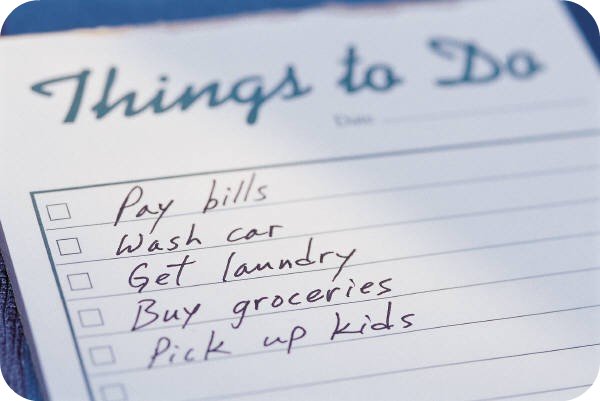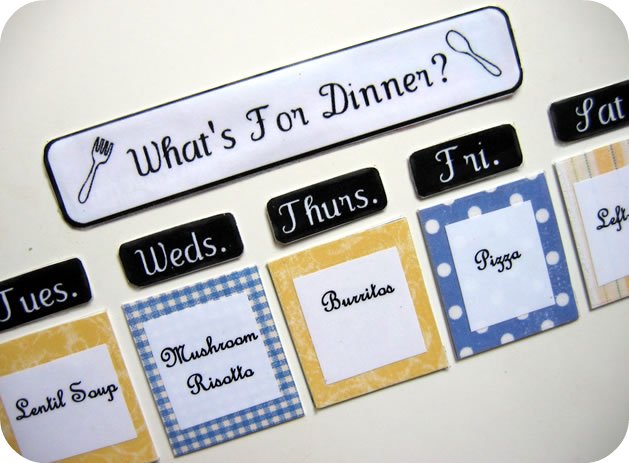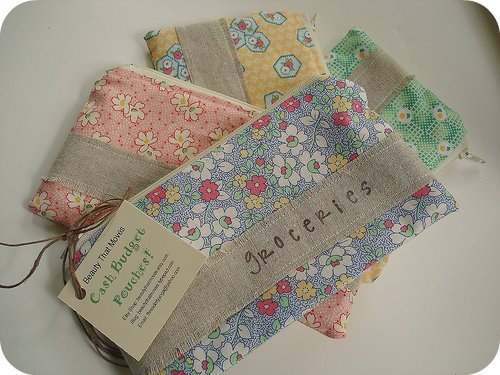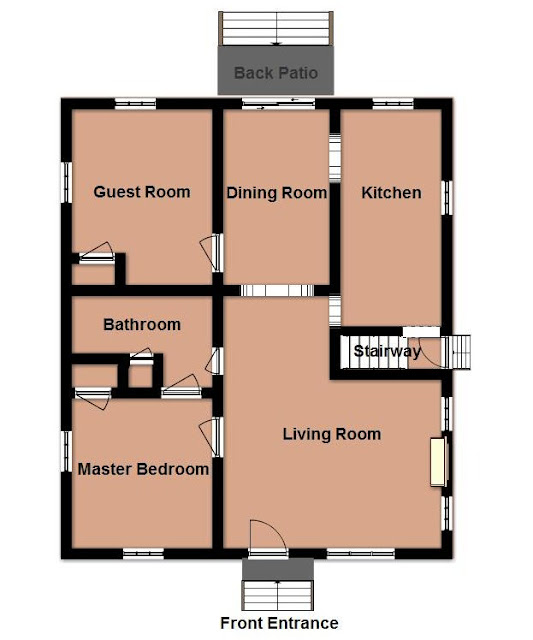Due to the massive amount of material on this subject, I feel slightly like an impostor trying to write anything even somewhat authoritative on the subject. But because I am passionate about organization, and because my mom sweetly asked me to (although most of what I know I learned from her!), I thought I’d share a few golden nuggets that I’ve learned over time.
If you’re wondering why I’m passionate about organization, I’d have to say it really comes down to creating more space and time for the things and people I love most. When organization exists in our home, we have less stress and more time to spend with loved ones. Being organized allows me to prioritize, and it removes some of the chaos from life. I believe that it’s actually quite freeing. Yes, it requires some time and effort up front, but in the long run, it gives back far more than it takes. All that said, this post will deal with a variety of topics that I believe all run in a similar vein, but it’s more of an overview of organization.
Before you read any further, know that if you were to look in my basement, you might not believe a word I’m saying—I don’t have this all figured out. Still, one day at a time I seek to conquer this thing we call organization. Here it goes…
1. Pare down. That means no matter how much you love it, if you haven’t used/worn it in over a year, you probably don’t need it. Last year I hosted a yard sale, and it was a total blast. Not only did I clear out my closets and earn a decent chunk of money, but I got to know some of my new neighbors in the process. Within a few months, I already had more items that I wanted to sell at a future yard sale, so I assigned a bin in our basement the duty of holding all items for the next sale, that way I won’t forget anything I want to sell, and it makes it easy to find everything when the next sale rolls around.
2. Designate a home base for everything. If you know where it belongs—and if you’re disciplined enough to put it there—you won’t have to wrack your brain wondering where you placed X. Nor will you have to waste time and energy thinking about where to put things. One of my dear friends recently told me that sometimes when she’s getting ready for last minute guests, she panics and just shoves things in random places. By creating a home for your stuff, you avoid stress and can simply enjoy it when friends pop in just to say hello.
Tip: If you can’t organize it, hide it. Buy furniture that has drawers or doors. For example, the end tables in our living room have drawers, so I can bury books and magazines in them, rather than piling them on top. Also, my desk has doors that close, so my computer and office materials are hidden from sight, which is simply more pleasing to the eye.
3. Since there will always be a few items pesky items that don’t have a home, I have a catch-all basket in my closet. It’s where I drop my purse after a long day of teaching, or where I put mail that needs to be sent out. It’s where I throw library books and anything that needs to be returned to a store. Because it’s somewhat hidden, and because I look in it every morning when I grab my purse, it doesn’t become too junky—and it keeps my counter tops clear.
4. Develop a routine. I’m not implying that you should forget spontaneity (being organized actually allows
more room for those whimsical moments), but having a routine helps you deal with the minor details of life—in a sense, it clears your mind so that you can think about the larger and more important arenas. For example, I make the bed almost every morning. My mom always said you sleep better in a made bed, and while I agree, I also feel like I have a clean room once the bed is made. It brings a sense of closure, which helps me move onto the next part of my day. I also think it’s a good idea to form a quick spruce routine for when guests are coming over. For example, I don’t usually clean the house from top to bottom when we’re having company, but I do like to wipe down the bathroom counter, lay out a fresh hand towel, fluff the pillows on the couch, and light a candle or two. Just a few final touches can make a big difference.

5. Keep a list. Or several. When I was in high school, I had trouble sleeping, because as soon as I tried to get some zzzzs, my brain started trying to remember everything I had to do the next day. Finally, my mom encouraged me to start writing things down, and it was as if my brain could finally relax—once it was on paper, I didn’t have to keep thinking about it. These days, I feel like a wandering nomad with no destination in sight without my lists. Last year I decided that although sticky notes are a fantastic invention, I was tired of having to rewrite my lists all the time. So I started keeping a list in a Word document on my computer (many new computers incorporate list makers in their software). I simply typed out all of the days of the week and wrote in my to-do list under each day. I like this for several reasons: 1.) I’m not constantly tracking down slips of paper. 2.) When I finish something, I just delete it and don’t have to rewrite the entire list because my paper is too full. I can also highlight top priorities or cut and paste to change the order of events. 3.) I can add in things to do under Monday when it’s only Thursday. 4.) If I need to take my list with me, I can easily print it off.

6. Keep a calendar. Matt and I started using a Gmail calendar when we got engaged, and we like how it enables us to see what the other person has posted. For example, Matt can post his new work schedule, and I can see it on my calendar whenever I open my email. While hanging a calendar on the fridge works well for many people, I love having the ability to add things to it from work, rather than waiting until I get home. I also keep a weekly menu calendar. Each weekend I create a menu for the week. There are tons of reasons why creating a menu is a good idea—one being that it saves you from multiple grocery trips, which saves you money in the end. Recently, I decided to start saving my weekly menus, as I’d like to eventually type up a list of go-to meals, or even start planning my menus by the month. Since we like to eat fresh, and since coupons change weekly, our weekly grocery run works for now.
7. Deal with things ASAP. In other words, don’t procrastinate. When something needs to be returned to a store, put the item in your car and return it within the week. If you have a bag of clothes that needs to go to Goodwill, put it in your car so that you won’t forget to drop it off after work. Rather than letting receipts pile up, file them into a recipe box or pitch them out. If you deal with things in small doses, it removes the dread that builds at the same rate as the piles. A daily spruce is a great way to avoid build-up. I like to do a quick clean-up right before bed, that way I don’t wake up to a mess.

8. Create a budget that fits your family. I won’t go into great detail, as this topic really requires a post to itself, but we use a cash wallet system that allows us to organize our expenses. I like knowing exactly how much money I have left to spend on groceries for the month after just a quick glance through the wallet. If you can stick to your budget, it frees you to save well and live generously, rather than being enslaved to debt. For more information, check out the following resources:
Crown Financial Ministries and
Dave Ramsey.
9. Keep it fun! Before I tackle cleaning the bathroom or organizing a closet, I always make sure I’ve got some good tunes playing in the background. Without fail, it lifts my spirits and helps me find my cleaning mode. Find something that makes the job more enjoyable for you—whether it’s working with a friend, opening the windows to let the sun stream in, or rewarding yourself with a sweet treat afterward.
10. Break the rules occasionally. There are days when we don’t make the bed. There are moments when I just can’t stand the thought of doing one more chore. By breaking the rules every once in awhile, I give myself a break and remember that it’s okay to live with the mess sometimes. And in a way, it’s like the phrase, “Absence makes the heart grow fonder.” When I get back into my routine of keeping things organized after a weekend of letting things go, I’m refreshed by it, rather than bogged down.
There are so many ways to organize things, and so many specific areas that can be tackled. Check out these other posts
here and
here for more ideas. And in the near future on the Shant, I’ll be posting about several specific things we’ve done in our own home, including how to maximize storage in small spaces and how to create organizational spaces when none seem to exist. My hope is that you will find a system that works for you, and that it will free you to live well.
Now your challenge is to find
one area that you can tackle within the next 24 hours—go to it!












